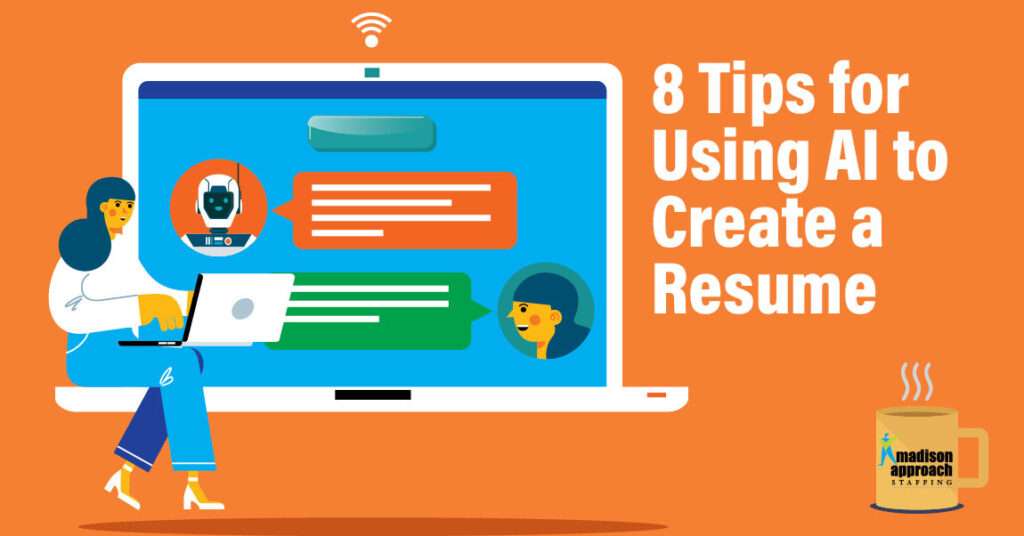Artificial Intelligence (AI) has suddenly dominated the media and it seems that everyone is jumping on the band wagon. If you are looking for a job or career change, you might be wondering how you can use it to assist with some of the tedious tasks of writing multiple versions of a resume or cover letters to specific job descriptions. AI can definitely help you as a job seeker, but there are some pitfalls to be aware of. There are specific resume-building AI tools, but some charge a fee, so this post is based on using ChatGPT which is a popular free tool that simply requires creating an account. Here are some pros, cons, and tips to consider:
- Gives You a Jumpstart: We all procrastinate and leave things to the last minute, so AI can definitely help jumpstart the process. If you cut and paste the job description in the field, and then ask the ChatGPT to rewrite the bullet points to fit your level of experience (you’ll need to detail what your experience is), the AI tool will generate a resume outline quickly, which can be a time-saver, especially if you’re struggling with writer’s block or starting from scratch.
- Writing & Keyword Assistance: Not all of us feel confident in our writing skills, so AI can be really helpful in generating suggestions for how to articulate relevant skills, accomplishments, and keywords to include in your resume. It can also potentially improve your resumes effectiveness in applicant tracking systems (ATS) which many online portals, like Indeed, use.
- It’s Hard to be Objective About Ourselves: It’s our career history, so writing professionally and objectively about our employment history is hard. Sometimes we may go on and on about something that is not that relevant and on the flip side, we sometimes gloss over awards and accomplishments that should be featured more prominently. AI can help filter or expand our content.
- Make it Personal: While AI will generate content, it will lack the personal touch and unique insights that only you can bring to your resume. Other people may be taking the same shortcuts as you are, so editing and personalizing your resume is crucial to stand out to employers. Employers getting a lot of resumes and applications will be able to spot a generic AI resume.
- Career Goals and Objectives: Only you know what your specific goals are for your career path—be sure to articulate them clearly. You can input your long-term goals are into the AI tool and it will help you word craft something distinctive to you. Be sure your career goals include industry nuances, and the unique qualities and skills that relates to the job you are vying for.
- Don’t Let Nuanced Inaccuracies Trip You Up: AI responses are based on patterns learned from diverse data, and it may not always be accurate or up to date with industry-specific requirements, leading to potential errors in your resume. Be sure to do your research and fact-check carefully. You are still the brains behind the resume, so be sure not to rely too heavily on AI.
- It Can be a Journey: Relying solely on technology to create your resume might make you miss the opportunity to reflect on your achievements and goals, which can provide valuable self-discovery in your career path. Ask a trusted colleague or mentor in your industry to review your resume to make sure it includes all of your accomplishments and sounds like YOU.
- Proofreading: Ask AI to proofread your resume carefully and check for industry terminology and grammatical errors, as nothing ruins a career opportunity faster than a glaring typo.
The use of AI has accelerated exponentially, and none of us want to be behind the times and miss out on utilizing a tool that can help us succeed. Remember that you are unique and your resume should reflect that. It’s smart to adopt to new technology but don’t lean on it too heavily. Lead on!

